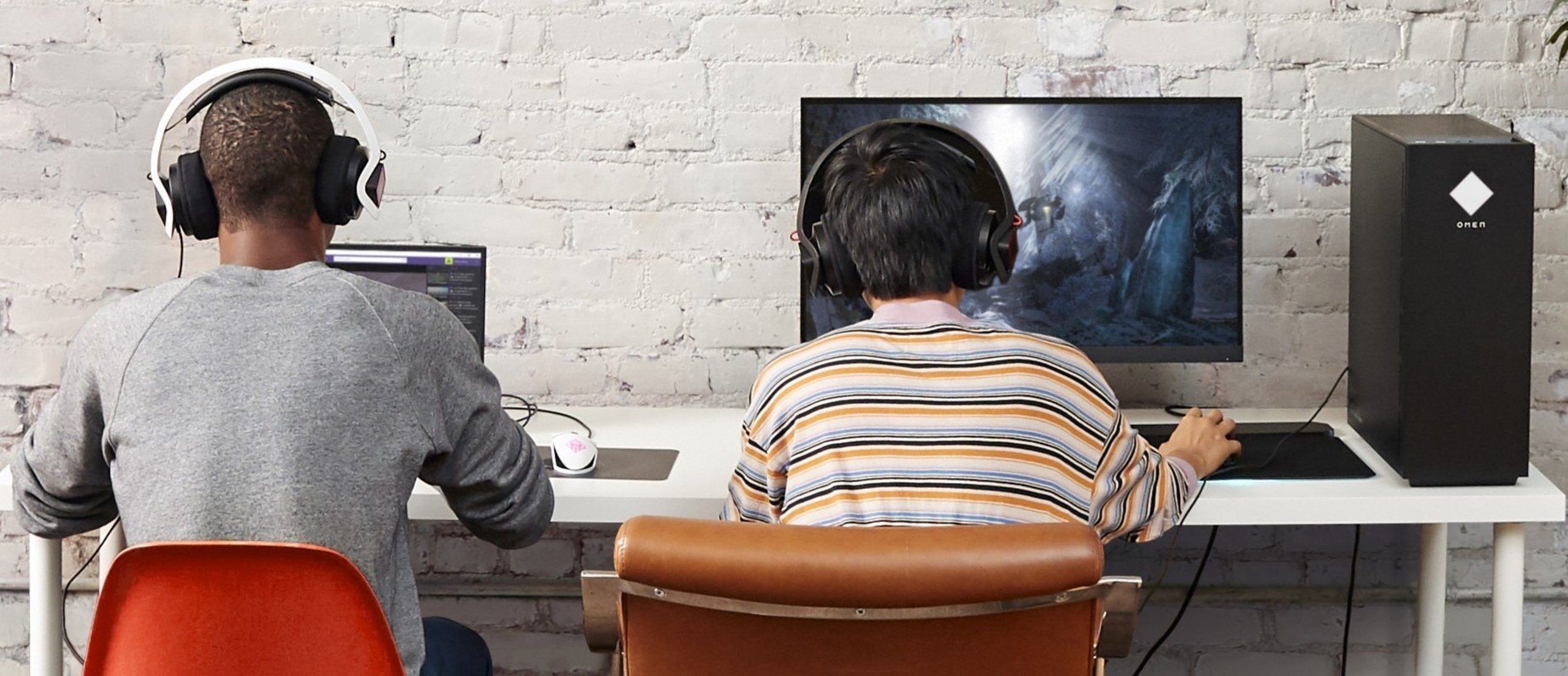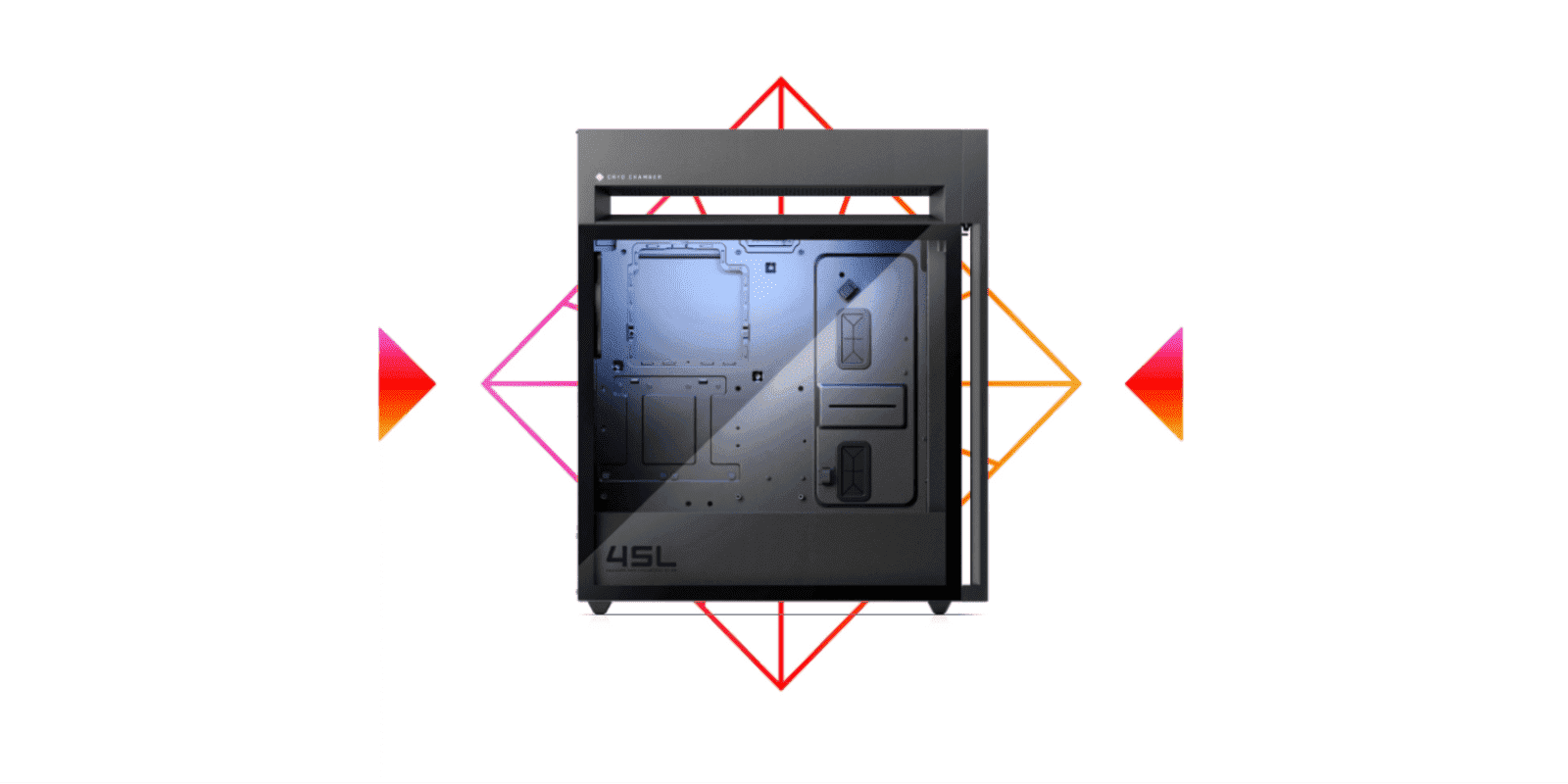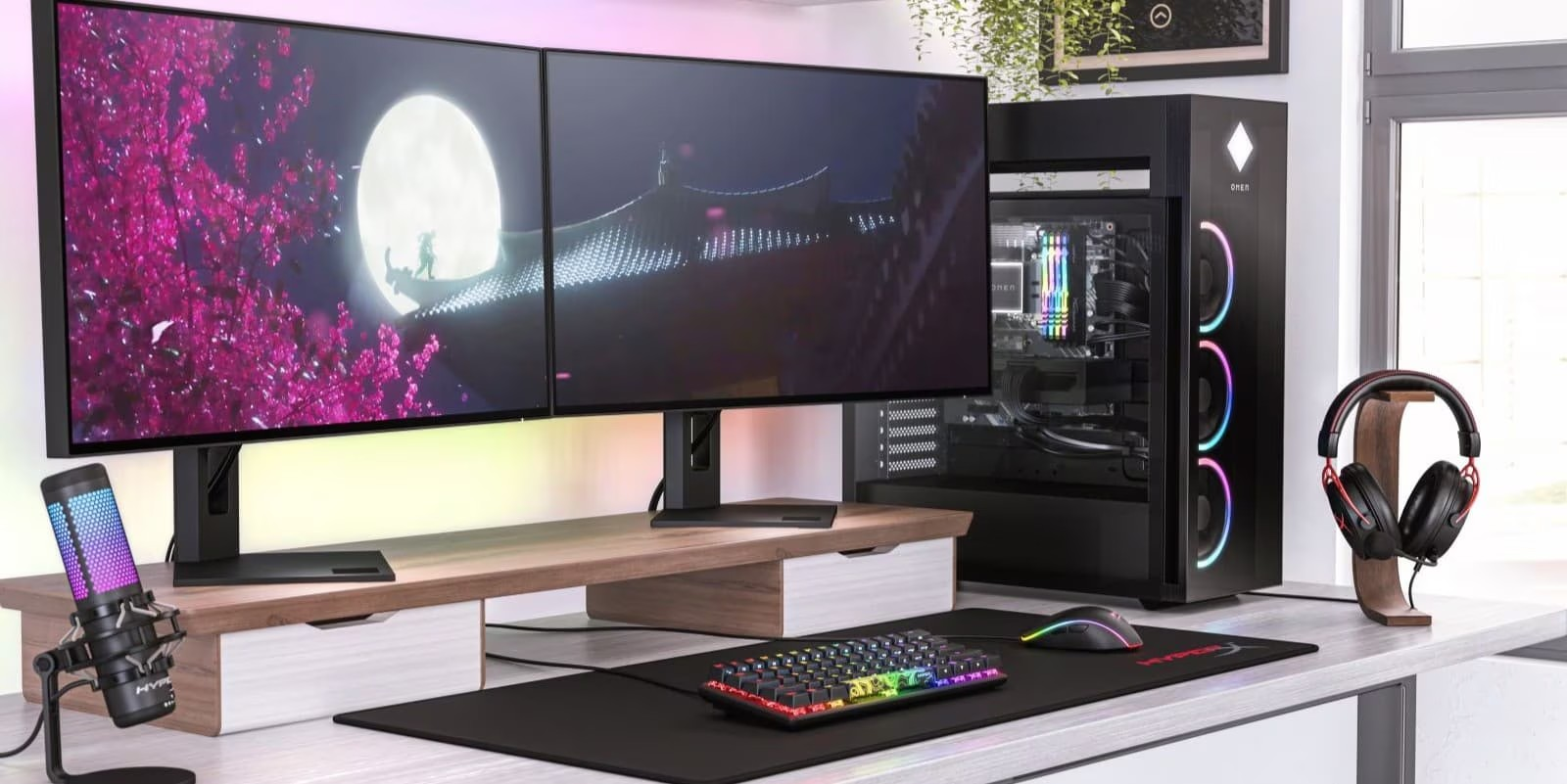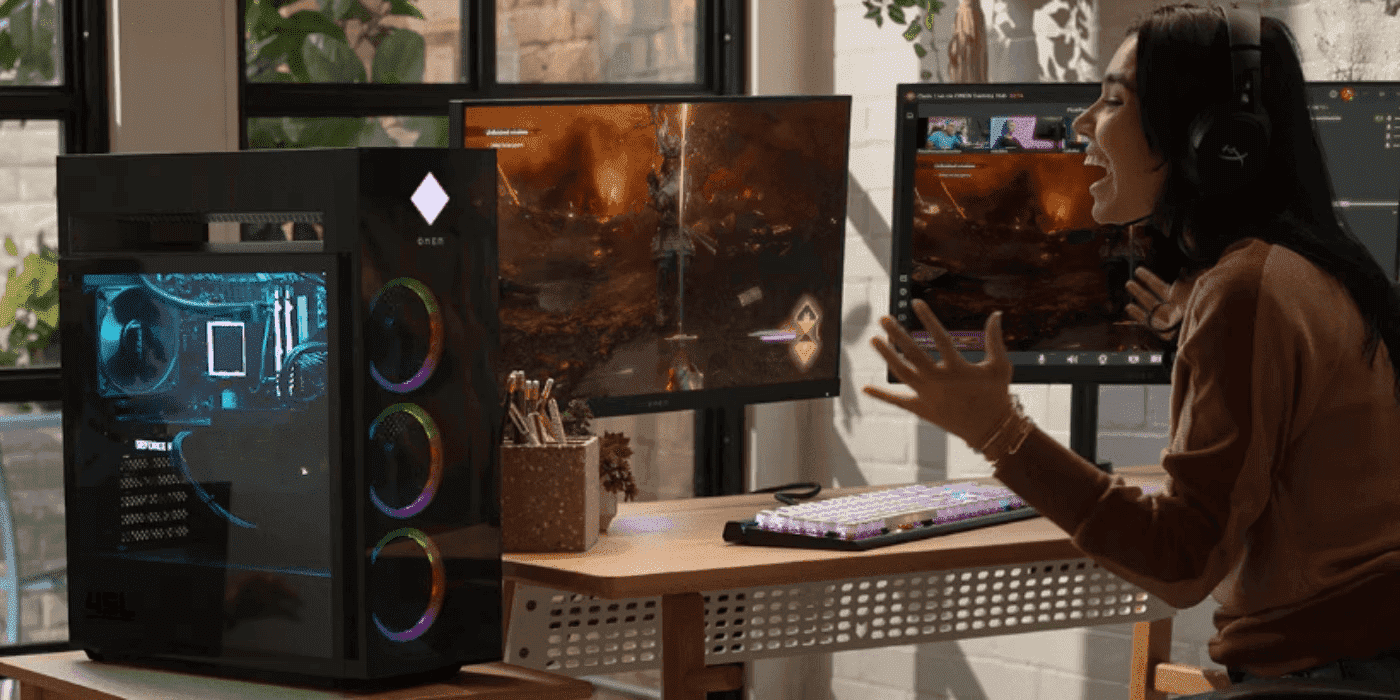Thank you for visiting the MALAYSIA HP Store
-
Contact Us
CONTACT USCall us
- Sales
- 1800 88 4889
- Technical support
- 1800 88 4889
Mon-Fri 8:30AM to 5:30PM
(exc. Public Holidays)
Chat with us- Sales
- 60166999350(WhatsApp)
-

Mon-Fri 8.30am - 5.30pm
(exc. Public Holidays)
Live product demo
Store finder Locate our stores - Location
- My Account
The 9 Best Cross-Platform PC Games for Mobile Devices


Warning: Some of the video games listed below are not suitable for younger viewers. Please use caution and check each game’s ESRB rating before allowing children to play it, especially those rated M for Mature. M-rated video games may contain content that is inappropriate for children and/or unlabeled content that exposes younger viewers to explicit messages and themes.
- Gaming on the go: then and now
- 1. Roblox by Roblox Studio
- 2. Badland by Frogmind
- 3. Crashlands by Butterscotch Shenanigans
- 4. Papers, Please by 3909 LLC
- 5. XCOM: Enemy Within by Firaxis Games
- 6. Hearthstone: Heroes of Warcraft by Blizzard Entertainment
- 7. PUBG Mobile by PUBG Corporation, and8. Fortnite Battle Royale Mobile by Epic Games
- 9. World of Tanks Blitz by Wargaming Minsk
Gaming on the go: then and now
There has been a long-standing distinction in video game playing between dedicated, “real” games and mobile, handheld ones. For the most part, bigger has always equated to better, as far as gamers were concerned.
Handheld gaming enters the stage
Back in the early 1980s, when arcade games were at the top of the gaming food chain, “handheld” electronic games were seen as a kind of hobby placeholder for enthusiasts. They used them to remind themselves of the games they enjoyed until they got a chance to get back to the arcades and play them again.
It was more of a novelty than anything else, a kind of interactive diversion to tide you over until you could get to the real thing again.
Nobody expected small and mobile games to deliver much of a compelling experience. It was enough that the thing just looked a little bit like what it was supposed to represent. Coleco put out a fleet of “home-version” of hit arcade cabinets with blinky, fixed-lighted graphic panels. The design and colours of the exteriors of the little units were often more impressive and fun to look at than the games themselves.
Nintendo corners the mobile gaming market
Then in 1980, a designer named Gunpei Yokoi, working for a then-obscure Japanese company created a series of handheld games using LCD digital watch-style technology called “Game and Watch.” They were little, repetitive platform games that fit into the palm of a user’s hand.
That company was named Nintendo, and they would go on to take the video game world by storm later in the decade with their home console: the Nintendo Entertainment System (NES). With their smash hit Super Mario Brothers, they single-handedly revived home video game consoles and becoming the backbone of the gaming industry.
In 1989, the same Gunpei Yokoi was the lead designer for Nintendo’s entry into the world of mobile gaming: the Game Boy [1]. The Game Boy continued the handheld’s tradition of being a specifically less-powered, sub-version of the hobbyist’s main love; it was something gamers would use on the go, with the trade-off of mobility for real power or true depth.
Casual, mobile, and handheld gaming was like snacking. Computers and consoles were where you went for the full meal. That was then.
Tablets take mobile gaming to new heights
Fast forward to now. High-powered tablet computers and phones boasting fast video and massive memory and storage are literally at everyone’s fingertips, and games are available and downloadable by the thousands.
And yet for all this power, among gamers “mobile” gaming has roughly the same kind of reputation it did back in the old days: casual, placeholder, non-serious, and “dinky.”
And this is true enough; there are plenty of tiny, casual shovelware apps and games out there; little time-wasters or kid-friendly tappers meant to pacify screaming toddlers in the backseat on the drive to the supermarket.
But mobile platforms can provide a lot more and, in many instances, they do.
We’ve assembled a list of the 9 best cross-platform games that blur the lines between what is “casual” and what is “real” gaming.
1. Roblox by Roblox Studio
Roblox is not really a game itself, but a gaming platform full of thousands of user-created games in a shared virtual space. The player creates a Roblox account, crafts a LEGO-looking avatar, and is free to explore the areas and mini-games that other players have developed using the Roblox Studio game-creation tools.
Within the blocky, modular world of Roblox, players can create their own spaces and areas, explore others’ areas, or play mini-games freely available that have been made by millions of other players. With an active user base of over 50 million people, the possibilities are near endless [2].
An in-game currency system called “Robux” allows players to buy speciality gear or modifications but is not expressly necessary to play most anywhere within the Roblox environment.
Like many free-to-play platforms, Robux can be gained in-game, but also may be purchased using real money. These micro-transactions can add up to major cash. Robux can be spent within mini-games developed by other gamers, who get a share of the real-world money.
The top Roblox developers, just people with Roblox accounts who taught themselves the development tools, earn upwards of two million REAL WORLD dollars in microtransactions a year [3]. The Roblox world is accessible and cross-platform playable on both iOS and Android mobile devices, as well as Windows, Mac, and the Xbox One console.
By providing users with a place where they can truly tinker and make things and share them, the Roblox Studio has created a kind of “Field of Dreams” virtual space, with a twist: If you build it, they will come…and they will build it.
2. Badland by Frogmind
It’s often said that the phones we carry around in our pockets have thousands of times the computing power of the machines that put men on the moon [4]. And each year, with each new batch of phones and mobile devices released, they get more and more powerful.
But sometimes, like the NASA computers that sent Neil Armstrong to take one small step for himself and one giant leap for mankind, they don’t have to be overpowered to pull off impressive things.
Badland, by the indie studio Frogmind, is a side-scrolling action/puzzle/platform game released in 2013 that still holds up today as one of the most beautiful and pleasing mobile games on the market. It’s the simple elegance of the design choice, where less truly is more: Badland presents its gameplay in stylish silhouettes, set against moody and artistic backdrops, with thoughtful, cinematic audio.
In this crossplay game, absolutely nothing that happens on the screen requires massive computing power; it’s a lot of black spaces and shapes, but they’re crafted with such care and artistry that it still seems impressive, fluid, and incredibly evocative, even six years later. And six years, in gaming terms, is several lifetimes.
Badland is deceptively simple; a one-finger press and release input sees the player providing flapping power to an odd little spherical woodland creature called a “Clone” who must fly through a series of obstacles, tunnels, and tubes to make it to the end.
The game builds on this simple interface, introducing new wrinkles along the way. Some levels see you commanding a swarm of creatures, some of whom must, due to the level design’s puzzle, be sacrificed along the way. All of this, in order to achieve the objective: see at least one of the creatures find its way to the end of the level.
Badland takes the fundamental experience and elements of traditional cross-platform games with its “get to the end” objective, and makes something really wonderful out of it by doing it well and cleverly.
Expansion packs and additional content created over the years since its release will give even the hardcore gamer hours and hours of enjoyable, compelling gameplay that will continually surprise them.
One of the best cross-platform PC games on mobile, Badland is a real gem and proves that quality and good construction can be timeless.
3. Crashlands by Butterscotch Shenanigans
How much fun and how deep of a game can you have if all your interface input is just tapping? As it turns out, Crashlands answers this question with a lot and very.
A whimsical, bright, and cartoony design sets the mood for this innovative action/crafting/resource-management/RPG hybrid. It sees the player as an intergalactic trucker with the improbable name of “Flux Dabes,” whose shipment and the ship end up crash-landing on a planet due to the sinister plotting of the even more improbably named “Hewgodooko.”
Once crashed, Flux must explore, collect, and craft items, weapons, and armour to survive the hostile environment and unlock the story and series of quests that follow.
Crashlands is friendly and inviting, and teaches the player quickly and intuitively its mechanics as it goes along. Finding and creating gear, exploring and levelling up, and progressing in the world the game lays out will easily consume 30+ hours of dedicated gameplay. It somehow manages to balance an open-world gameplay style while presenting a linear, story-driven main quest and payoff on both ends.
Fresh, funny writing and a fair, fun difficulty level make it one of the crossplay games that play to the strengths of the platform. The simple tap interface is smartly used to do some very complex item crafting and gaming. Boss fights, level progression, super-customizable gear, and a satisfying build and inventory system are all made with great care.
4. Papers, Please by 3909 LLC
When you think of video games, it’s probably a lot of spaceships shooting laser beams, ninjas leaping obstacles and fighting bosses, and adventurers battling orcs and dragons, robots and commandos, right? They’re an escape from reality and drudgery, offering fantastic settings and superpowers at the press of a button, generally.
Not so with Papers, Please. This offbeat title makes a game of a very unlikely subject. You play the part of a dreary Eastern Bloc border patrol clerk from the vaguely oppressive fictional country of Arstotzka.
The clerk sits at a desk and is confronted by a series of immigrants attempting to enter the country, examining their paperwork (for real!) and either denying them entry or allowing them in. The graphics are stylistically “old school” with a drab colour palette that feels like the institutional, industrial grime from such an imagined place.
This doesn’t sound like the makings of a video game, right? But somehow, it manages to evoke a very emotional experience, as it simulates very real moral choices you must make and balance against your own self-interest.
Catching errors in documentation is your goal, but as it progresses, the game creates a gameplay mechanic of empathy and morality for these pixelated images asking to cross an area where you have the power of “yes” or “no.”
Do you separate a father and child, because technically, the rules say you should? Or do you let it slide, knowing that too many leniencies will result in your own virtual family not having enough food or money?
Rationing out empathy where you can, and hardening your virtual heart to others when you can’t, becomes an oddly fascinating gameplay aspect… while also spotting clues about bombers, criminals, or con artists, and denying them.
It’s a game that must really be played to be understood. How you play and the choices you make determine what kind of ending occurs, and you might agonize over how best to balance your conscience and what you are willing to trade-off.
Depending on your disposition, you may or may not enjoy the game itself. But there really is something to be said for the kind of imaginative mind that dared to find the “game-ness” in the idea of this drudgery, and find the humanity in it. Papers, Please is a kind of proof of the idea that games are their own kind of entertainment medium, and game design is a special kind of interactive art.
5. XCOM: Enemy Within by Firaxis Games
The XCOM series of games are turn-based strategy/tactical action titles, set in a sci-fi world of aliens and spaceships and bases. They present the player with a “God’s eye view” of a sprawling installation that he or she must manage and build while fighting off enemy forces. The original game was released as a triple-A (AAA) title for Windows, PlayStation 3, and Xbox 360 in 2013.
Oftentimes, when a big title like this is ported over for a mobile touch interface, the gameplay is modified or stripped down, or even changed altogether. It is very rare that a title makes the jump with the game playing exactly as it did on the consoles and platforms it was initially built for.
But XCOM: Enemy Within does it. The turn-based tactical gameplay translates well and intuitively to a finger-tap interface. And the game, for all intents and purposes, looks the same as it did on the consoles. This title, one of the best mobile strategy games out there, blurs the line between mobile and dedicated gaming platforms.
The game itself is a tense strategy actioner that tasks the player to build and manage resources, use and deploy forces effectively, maximise damage to the enemy and minimise casualties all while building new resources over time.
Turn-based and selection drove, the use of a touch interface soon becomes second nature and the gameplay experience is virtually identical to the PC and home console versions. It is amazing what these thin little computers we carry around can do, and XCOM: Enemy Within is one of the titles that put this reality on full display.
6. Hearthstone: Heroes of Warcraft by Blizzard Entertainment
Hearthstone is a virtual collectable card-battling game. Think Pokémon or Magic: The Gathering cards, but set in Blizzard’s Warcraft universe. It is a free cross-platform game with in-game purchases that can speed up your deck’s potency, but continued free gameplay will unlock cards along the way.
In Hearthstone: Heroes of Warcraft, a player assumes the role of one of many Warcraft character classes (Druid, Hunter, Paladin, Mage, Warrior, Rogue, Priest, etc.). You then assemble a playable deck of Hearthstone cards, each with different attack, defence, buff, and debuff abilities to affect the other cards and the other player.
Then you put your deck and character against another player. It’s sort of like gin rummy, only with animated lightning bolts, war orcs, fireballs, and goblins.
As with any collectable card game, the gameplay in Hearthstone is a balance of your own strategy and ingenuity in taking your available cards and figuring out different possible combinations of effects and multipliers they might give each other.
You also gain new, more intrinsically powerful cards. In-game purchases of booster pack speed this along, and the free game can see hardcore players dropping upwards of $400 to unlock every single overpowered, rare and legendary possibility.
But the game is also a lot like poker. You can always find a match on whatever level you’re comfortable playing. Players going totally free, and earning cards by winning challenges, can have an endless string of addictive, strategic hours ahead of them. But like a lot of the free cross-platform games, buying in will get you more options quicker, and hardcore gamers tend to have a big budget for this game.
Hearthstone is a game that is perfectly suited for mobile devices, although it is also available to play on a PC or Mac. And battles occur across platforms using Blizzard’s battle.net servers that run all the interactions.
7. PUBG Mobile by PUBG Corporation, and
8. Fortnite Battle Royale Mobile by Epic Games
PUBG and Fortnite Battle Royale are both multiplayer online battle arena (MOBA) games that have defined action gaming over the past two years. Both offer mobile versions that are two of the best multiplayer mobile games available. They’re shockingly great, considering how much muscle memory is dedicated to using a gaming controller or mouse and keyboard to play them.
Both are third-person, over-the-shoulder, open-map, and scavenge-and-destroy fests. And while both have broad similarities, each does have its own particular feel and aesthetic and gameplay differences.
Both games play a little differently on a mobile device strictly by way of the “virtualizing” of the controller onto a flat touch screen. With practice, this learning curve from one control scheme to the other gets more natural, but players from the PC or console versions will probably always prefer their original controls on the platform that they’re most familiar with.
That said, PUBG Mobile runs smoother and somehow ends up looking better on mobile devices than it does on Xbox One. Fortnite Battle Royale Mobile offers true cross-platform mobile gameplay, so you can fight or team up with your friends on a console or PC.
But this feature might prove to be a little bit of a bug. Players on a mobile device might suffer against console and PC gamers who have more precise, quicker input devices. PUBG Mobile sets players only against other mobile gamers, so the playing field is a bit more level.
Both are free to download and play, with in-app purchases.
9. World of Tanks Blitz by Wargaming Minsk
Produced in Belarus by a studio called Wargaming.net, World of Tanks Blitz began life as World of Tanks for the PC. As World of Tanks Blitz, it became both a big hit in Russia as well as another popular massively multiplayer online (MMO) game, now centring on mechanized combat.
World of Tanks Blitz works on the freemium model, offering free-to-play gameplay for the casual gamer, but in-game purchases that unlock better gear and fewer restrictions for dedicated players.
The action is fast and furious, and the controls are responsive - for a tank. Part of the draw is the clunkier, less agile type of warfare that moving a tank around is prone to; manoeuvring into position, circling and counter-circling, or getting stuck and shelled.
World of Tanks Blitz pares down and streamlines the PC version for its mobile offering, but manages to give a good accounting of the spirit of the gameplay within the simpler controls.
[1] ETHW.org; Gunpei Yokoi
[2] Venture Beat; Roblox draws more than 50 million players a month to game world
[3] Engadget; Hobbyist developers will make $30 million via “Roblox” this year
[4] NASA; Voyager 2 enters interstellar space
- Sales
- 1800 88 4889
- Technical support
- 1800 88 4889
Mon-Fri 8:30AM to 5:30PM
(exc. Public Holidays)
- Sales
- 60166999350(WhatsApp)
-

Mon-Fri 8.30am - 5.30pm
(exc. Public Holidays)
Live product demo








